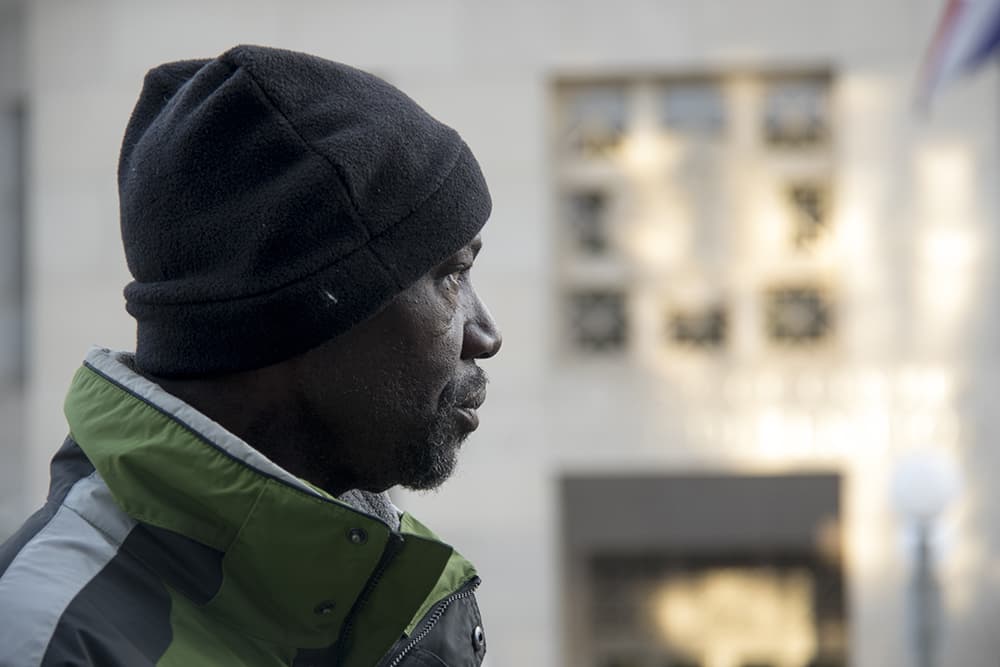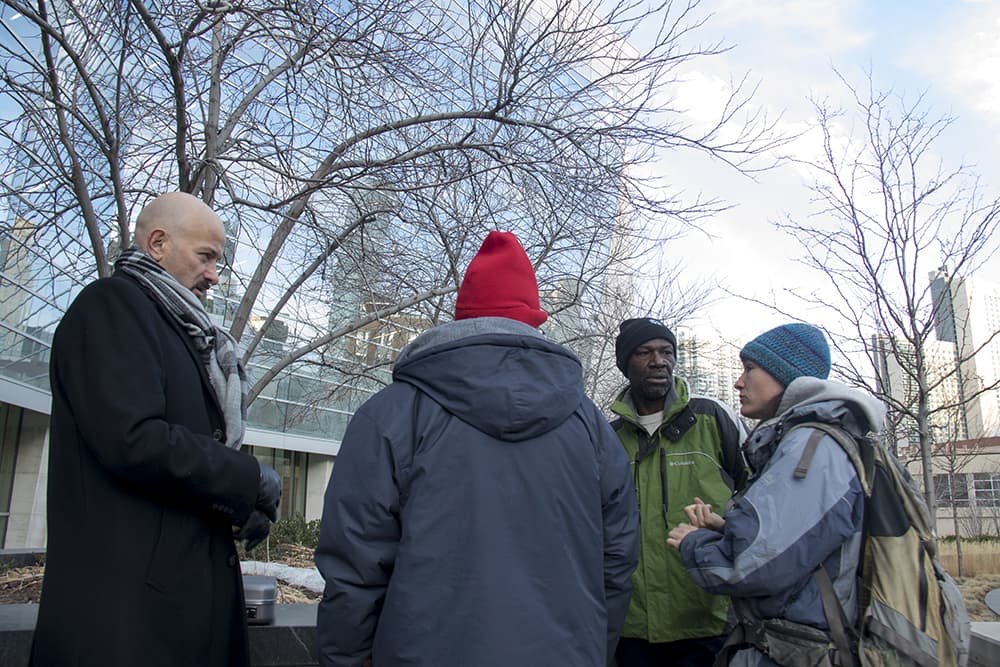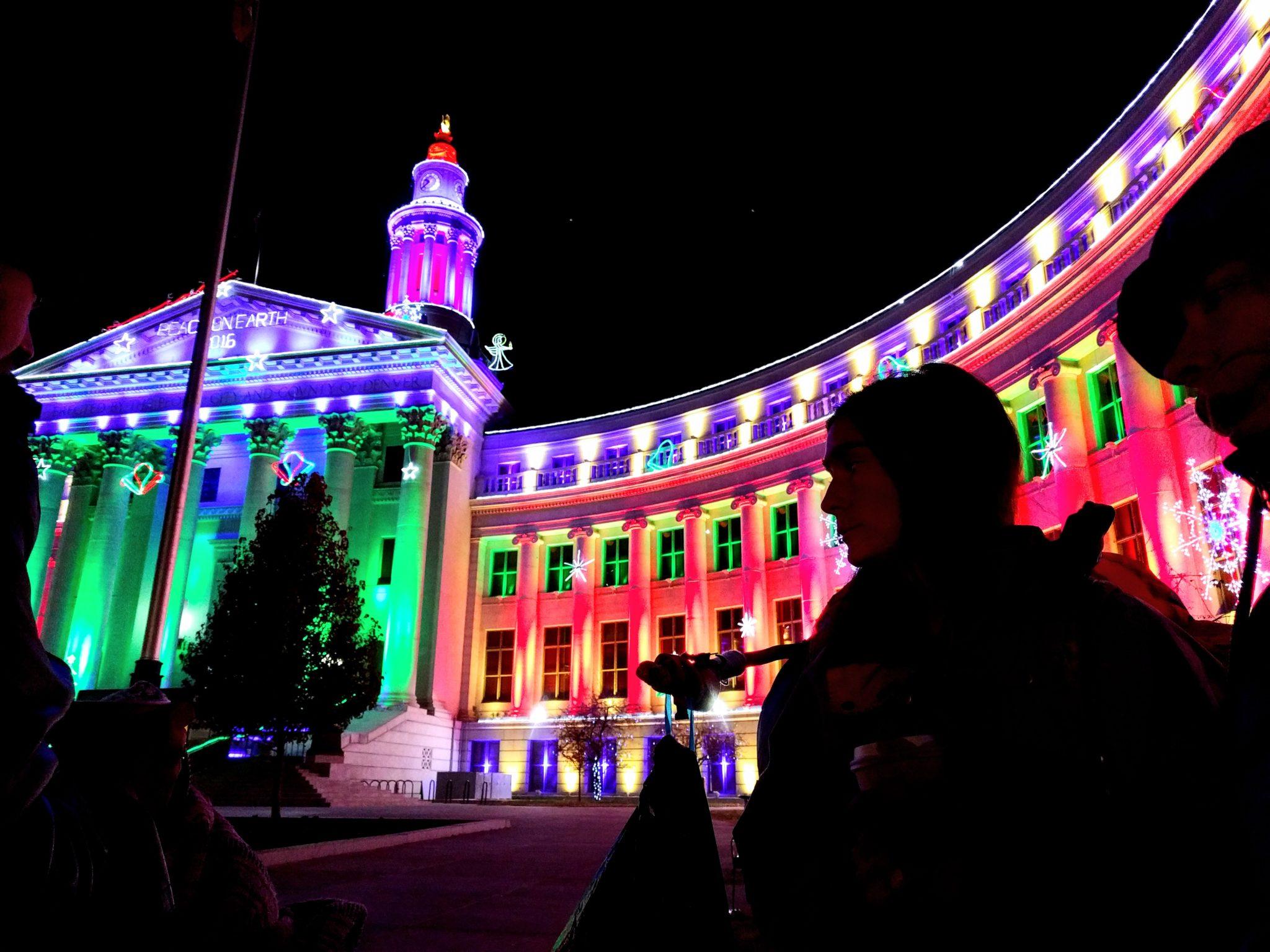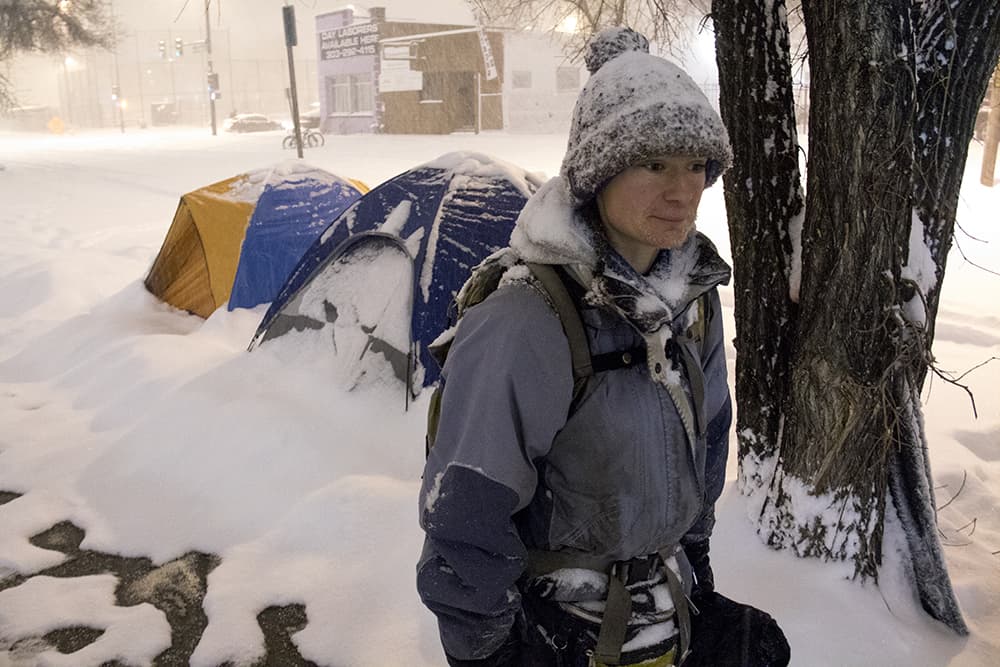
Jerry Burton, Randy Russell and Terese Howard all pleaded not guilty Wednesday morning to camping in Denver. Their ultimate hope is to overturn the city's camping ban, but first they wanted their stuff back.
Since Nov. 28, the city has been holding tents, sleeping bags and blankets as evidence of violating the camping ban.
A few hours after the three appeared in court and without a court order to do so, city officials said they had sufficiently documented the existence of the sleeping gear and could now return it.
"It goes to the effectiveness of shining a light on things and litigating them," said attorney Jason Flores-Williams, who represents the homeless defendants on their camping charges. Flores-Williams also represents other homeless people who have brought a civil rights lawsuit against Denver over how it has dealt with personal possessions during repeated sweeps of encampments in public areas.
Flores-Williams and his clients hope that by taking their cases to trial before a jury, they can shine a similar light on the camping ban itself.
"We believe and my clients believe that this is the sort of unjust law that must be challenged," he said.
That challenge could proceed on a number of fronts, including that it constitutes cruel and unusual punishment and violates the due process rights of homeless defendants, Flores-Williams said.
He did not rule out appealing for jury nullification either, in which case he would argue the law is simply unjust. Jury nullification occurs when jurors believe a defendant violated the law as written but refuse to convict because they don't believe the law is fair or just.
Flores-Williams also noted the irony of his clients being prosecuted even as Mayor Michael Hancock has ordered police to stop taking blankets and sleeping bags until spring on humanitarian grounds.
"The mayor is talking out of both sides of his mouth, or he's not in charge of the situation," Flores-Williams said.
"I wouldn't know how to characterize the mayor's actions other than to say it creates numerous inconsistencies for everyone," he added. "People are being criminalized, and the mayor is getting positive publicity. It's confusing for everyone."
Jenna Espinoza, a spokeswoman for Hancock, said the city's position has always been consistent. The city does not believe it is safe or sanitary for people to live outside. The city doesn't want to create additional hardship for people who choose not to go to a shelter, but the camping ban remains in effect. People could still be ticketed -- though it doesn't appear that anyone has been since the night of Nov. 28-29, when Howard, Russell and Burton set up outside the City and County Building.
"When they didn't comply with the law, they were ticketed," she said. "From the city's standpoint, we have been very consistent with what we're trying to do, which is connect people to services. We're talking to people on an individual basis and trying to connect them to the services that they need."
Howard said the prosecutions show the camping ban isn't about helping people. The camping ban turns survival into a crime, she said.

Let's back up and look at how we got here.
Denver police don't issue that many camping tickets. In fact, there have been only nine in all of 2016. Mostly they tell people to "move along" and issue warnings.
But on Nov. 28, officers wrote tickets to Russell and Burton in the "Triangle" area near Park Avenue West and Broadway and confiscated their gear as evidence. In the weeks before, public works crews had repeatedly cleared the area, only to repeatedly see people move back in.
(Espinoza said the city doesn't "take" people's belongings because they can always pick them up later at a city depot, but homeless people say the limited hours and difficulty demonstrating that your stuff is, in fact, yours makes it hard to actually get belongings. And some stuff seems to go missing in the process.)
"They disassembled my tent for me and ruined my tent to the point that it won't stand up anymore," Russell said. "... I was warm before they took my stuff. Now I'm freezing to death, and I've got pneumonia from staying in the shelter."
Later that night, a group of homeless people and activists set up camp outside the City and County Building, a move they say was not a "protest" but doing what they had to do anyway -- sleep outside -- in a place where it would draw attention.
"I was trying to live my life, but to bring attention to this, we needed to take it to the City and County Building," Burton said. "We could have taken it to the mayor's house."

Russell and Burton each got a second ticket that night. Howard, a member of Denver Homeless Out Loud, was also ticketed.
"When I was given a ticket, I was not intending to get a ticket. I was sitting on my sleeping bag talking to people," said Howard, who was the only one of the three not to have her stuff seized as evidence.
Denver police said everyone involved had ample opportunity to move, and many other people in front of the City and County Building that night did just that.
This case may or may not spark a larger constitutional challenge.
First there needs to be a trial and a jury verdict. If the defendants are found not guilty, that's pretty much that, and the long-term fate of the camping ban remains a political question for the mayor and City Council. If one or more of them are convicted, they could appeal that conviction.
The Colorado Supreme Court had an opportunity to hear a challenge to Boulder's camping ban in 2011 and declined. That allowed Boulder's law to stand. The Denver City Council passed its camping ban the following year, and there hasn't been a new legal challenge in Colorado since.
Challenges to camping bans in other parts of the country have sometimes had limited or temporary success -- especially in places where there were not enough indoor sleeping spaces -- but camping bans have never been definitively found to be unconstitutional, though many advocates and civil libertarians believe they should be.
"The law is encapsulated by society's conscience and I think society's conscience has changed," Flores-Williams said.
Espinoza said there is plenty of room for people to sleep inside, and that's what city officials want them to do.
I asked Russell and Burton why they don't want to go to the shelter, and Russell's answer was pretty vivid: "Three hundred-plus men coughing on you, sleeping elbow to elbow, someone on each side of you and they won't cover their mouth."
Both men said they felt the city took their gear in part to force them into the shelter. In Russell's case, that's been the outcome.
Espinoza said that by storing people's belongings, the city is making it easier for people to go to shelters.
"I wouldn't say we're trying to force people into shelter, but it's always been our stance that we would much prefer people to seek overnight shelter and day shelter and take advantage of services," she said. "We're trying to break down the barriers that are preventing them from seeking overnight shelter."













